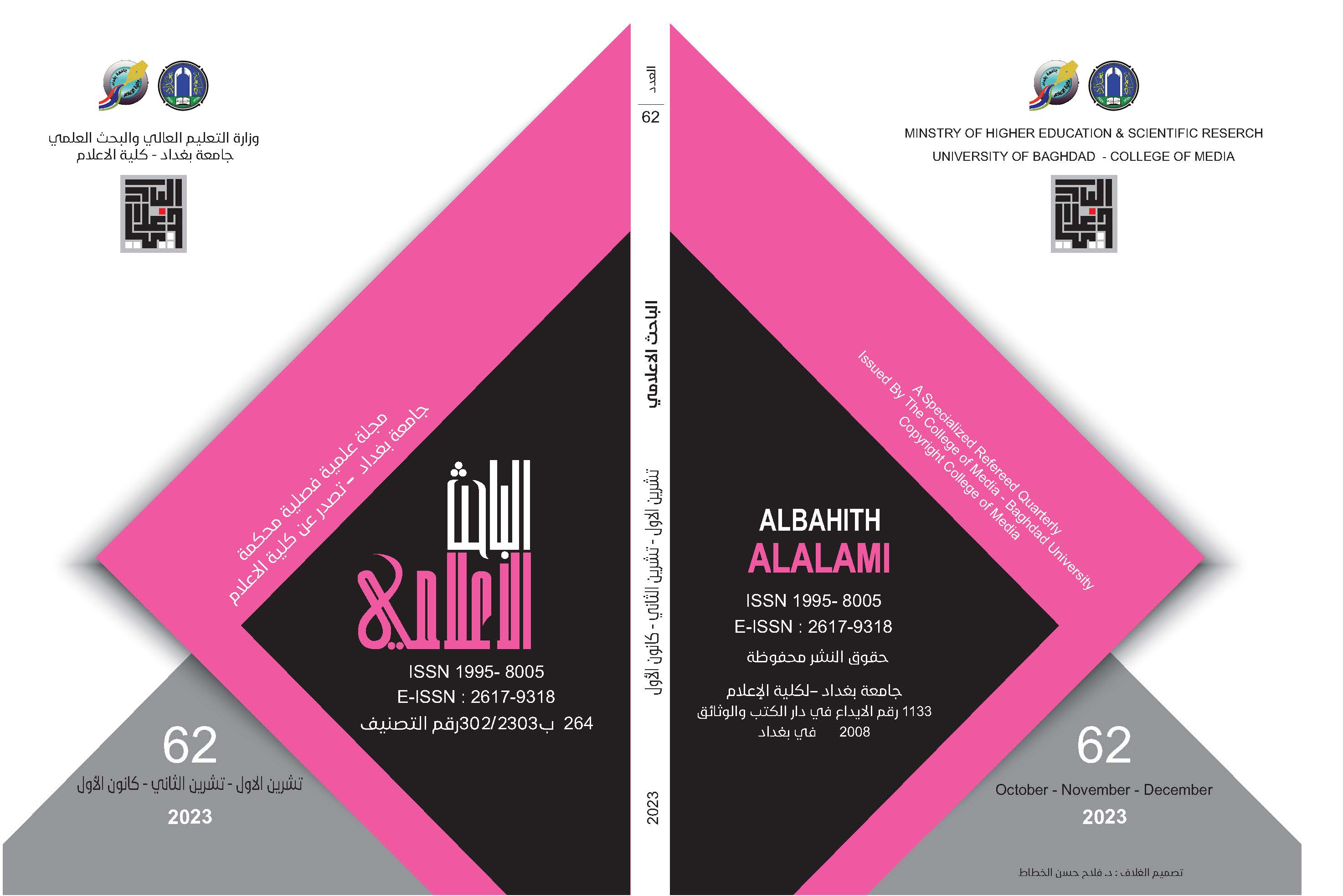Abstract
The philosopher and social psychologist Erich Fromm (1900-1980), in his book "Escape from Freedom" highlighted the distinction between the "I" of the authoritarian personality and the "I" of the destructive personality based on their stance towards "the other." The former (the authoritarian self) relies on a submissive, enslaving formula, where the "I" is the master/dominator/controller/strong, while "the other" is the servant/submissive/controlled/weak, essential for perpetuating this formula. In contrast, the latter (the destructive self) relies on an annihilating, negating formula, where the "I" is existence/killer/destroyer/persistent, while "the other" is non-existence/killed/destroyed/temporary. From these two formulas stem all extremist violent tendencies and practices.
In a world teeming with such tendencies and practices, delving into the structures of these formulas becomes a paramount existential necessity, especially since these formulas permeate every facet of life: personal, political, social, religious, media, economic, and academic, transforming the world into arenas of bloody conflicts, disfiguring the "I" and annihilating the "other."
Researchers have studied the psychological-social dynamics of these formulas. However, there hasn't been a comprehensive approach employing "dogmatism" as discourse to explore the structural essence of these formulas, which this study aims to achieve.
In his book "The Open and Closed Mind: Investigations into the Nature of Belief Systems and Personality Systems" social psychologist Milton Rokeach (1918-1988) studied the "Dogmatic Mentality": a relatively closed cognitive system of beliefs and non-beliefs organized around a core set of beliefs related to the dangerousness and threat of the world and a middle set of beliefs associated with absolute dominant power. When this structure crystallizes as a discourse, it widens, deepens, and solidifies, dissolving the "I" into "power" and negating "the other" as an independent, equal human entity, becoming, in communicative and media outcomes, material for manipulation and intimidation.
In a world teeming with such tendencies and practices, delving into the structures of these formulas becomes a paramount existential necessity, especially since these formulas permeate every facet of life: personal, political, social, religious, media, economic, and academic, transforming the world into arenas of bloody conflicts, disfiguring the "I" and annihilating the "other."
Researchers have studied the psychological-social dynamics of these formulas. However, there hasn't been a comprehensive approach employing "dogmatism" as discourse to explore the structural essence of these formulas, which this study aims to achieve.
In his book "The Open and Closed Mind: Investigations into the Nature of Belief Systems and Personality Systems" social psychologist Milton Rokeach (1918-1988) studied the "Dogmatic Mentality": a relatively closed cognitive system of beliefs and non-beliefs organized around a core set of beliefs related to the dangerousness and threat of the world and a middle set of beliefs associated with absolute dominant power. When this structure crystallizes as a discourse, it widens, deepens, and solidifies, dissolving the "I" into "power" and negating "the other" as an independent, equal human entity, becoming, in communicative and media outcomes, material for manipulation and intimidation.
Keywords
Authoritarianism
Destructiveness
Discourse
Dogmatic Mentality
Abstract
الفيلسوف وعالِم النفس الاجتماعي Erich Fromm (1900-1980)، في كتابِهِ " الهروب من الحريَّة "، بيَّن أن المائِز بين " أنا " الشخصية التسلطية و " أنا " الشخصية التدميرية يتمثَّل بالموقِف من "الآخر"، إذ تعتمد الأولى (الأنا التسلطية) على الصيغة الاستعباديَّة الإخضاعيَّة، فالأنا هي السيد /المهيمن/ المتحكم / القوي، بينما الآخر هو العبد / الخاضع / المحكوم / الضعيف، وبقاءه ضروري لإدامة هذه الصيغة، في حين تعتمد الثانية (الأنا التدميرية) على الصيغة الإفنائيَّة الإلغائيَّة، فالأنا هي الوجود / القاتل / المدمِّر / الباقي، بينما الآخر هو العدم / المقتول / المدمَّر / الفاني، فمحو حضوره هو الضروري لإدامة هذه الصيغة، ومِن هاتين الصيغتين تنبثق كل التوجهات والممارسات العُنفيَّة المتطرفة التعصبية .
وفي عالَمٍ يموج بتلك التوجهات والممارسات، يكون الحفر في بنى هاتين الصيغتين ضرورة وجودية قصوى، ولاسيما أن تلك الصيغتين تمتدان إلى كل مفاصل الحياة، الشخصية والسياسية والاجتماعية والدينية والإعلامية والاقتصادية والأكاديمية، محولة العالَم إلى ساحات صراعات دموية، مُشوِّهَة للـ " الأنا " وقاتِلَةٌ للـ "آخر".
وقد عَملَ الباحثون على دراسة الديناميات النفسية – الاجتماعية لهاتين الصيغتين، إلا إنَّه لم تتم بحسب التتبع تقديم مقاربة توظف " الدوغماتية " كخطاب في استكشاف الجوهر البنيوي للصيغتين. وهذا ما تحاوِل هذه الدراسة انجازه.
وفي كتابِ " العقل المغلق والمفتوح: بحوث في طبيعة أنساق المعتقدات وأنساق الشخصيّة "، لعالِم النفس الاجتماعي Milton Rokeach (1918-1988) عمل على دراسة "العقلية الدوغماتية": نظام معرفي مغلق نسبيًا من المعتقدات واللامعتقدات، منظمة حول مجموعة مركزية من المعتقدات المتعلقة بغابيَّة وتهديدية العالم، ومجموعة وسطى من المعتقدات المتعلقة بالسلطة المهيمنة المطلقة، التي تنتج إطارًا لأنماطًا من اللاتسامح نحو الآخرين، تلك البنية التي عندما تتشكَّل كخطاب Discourse، تتسع وتتعمَّق وتُمأسَس، فتُذيب " الأنا " في " السلطة "، وتنفي " الآخر " ككينونة بشرية مستقلة مساوية، ليُصبِح – في النتاجات التواصلية الاجتماعية والإعلامية – مادَّةً للتطويع والترويع.
وفي عالَمٍ يموج بتلك التوجهات والممارسات، يكون الحفر في بنى هاتين الصيغتين ضرورة وجودية قصوى، ولاسيما أن تلك الصيغتين تمتدان إلى كل مفاصل الحياة، الشخصية والسياسية والاجتماعية والدينية والإعلامية والاقتصادية والأكاديمية، محولة العالَم إلى ساحات صراعات دموية، مُشوِّهَة للـ " الأنا " وقاتِلَةٌ للـ "آخر".
وقد عَملَ الباحثون على دراسة الديناميات النفسية – الاجتماعية لهاتين الصيغتين، إلا إنَّه لم تتم بحسب التتبع تقديم مقاربة توظف " الدوغماتية " كخطاب في استكشاف الجوهر البنيوي للصيغتين. وهذا ما تحاوِل هذه الدراسة انجازه.
وفي كتابِ " العقل المغلق والمفتوح: بحوث في طبيعة أنساق المعتقدات وأنساق الشخصيّة "، لعالِم النفس الاجتماعي Milton Rokeach (1918-1988) عمل على دراسة "العقلية الدوغماتية": نظام معرفي مغلق نسبيًا من المعتقدات واللامعتقدات، منظمة حول مجموعة مركزية من المعتقدات المتعلقة بغابيَّة وتهديدية العالم، ومجموعة وسطى من المعتقدات المتعلقة بالسلطة المهيمنة المطلقة، التي تنتج إطارًا لأنماطًا من اللاتسامح نحو الآخرين، تلك البنية التي عندما تتشكَّل كخطاب Discourse، تتسع وتتعمَّق وتُمأسَس، فتُذيب " الأنا " في " السلطة "، وتنفي " الآخر " ككينونة بشرية مستقلة مساوية، ليُصبِح – في النتاجات التواصلية الاجتماعية والإعلامية – مادَّةً للتطويع والترويع.
Keywords
التدميريّة
التسلطيّة
الخطاب
الدوغماتيّة
